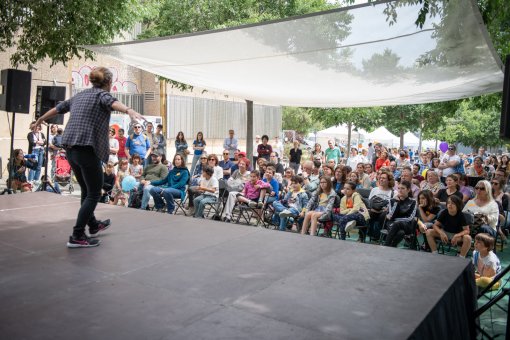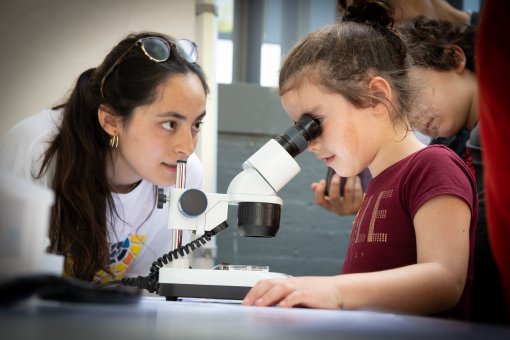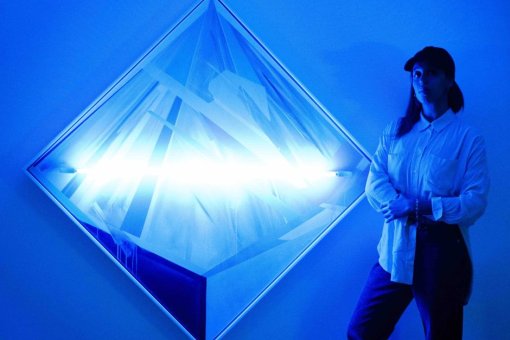Images
Participants
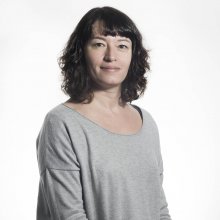
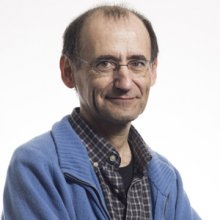
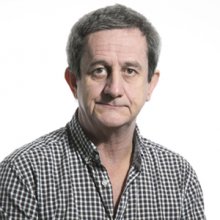
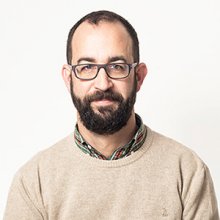


Contact

The workshop is organized by IRB Barcelona as part of the CatalunyaCaixa Foundation's Professors and Science programme.
Its aim is to improve science teaching in schools and increase science as a vocation among students.
On November 30-December 1, IRB Barcelona will hold the second edition of its teacher training course, “On the fly”, as part of the third edition of the “Professors and science” programme organized by the CatalunyaCaixa Foundation, with the support of the Barcelona Science Park.
The “Professors and science” programme, which has already trained 600 high-school teachers throughout the years, takes place in the principal research centers across Catalonia. The courses focus on high-level scientific themes and aim to help improve the continued training and specialization of secondary school teachers, allowing them to bring new knowledge back to the classroom.
IRB Barcelona will hold the second edition of its teacher training course, “On the fly”. The workshop will host 18 teachers from schools across Catalonia and is recognized as 15 accredited training hours by the Department of Education of the Catalan Government. The course will provide an opportunity for teachers to learn about the latest developments in cutting-edge cell biology research with the goal of providing concrete support for their science teaching activities. Themes to be addressed cover several topics in the current science curriculum, including mitosis, cell death, genetic diseases and ethics in animal experimentation. The title of the course, “On the fly”, alludes to research using the fruit fly, Drosophila melanogaster, as an animal model, an area of research for which IRB Barcelona world-renowned.
The success of the first edition of “On the fly” and progress in applying new knowledge to the classroom have prompted the second edition. The initiative provides teachers with a valuable opportunity to acquire new tools to improve their science teaching, utimately raising interest among their students in choosing a career in science. A study published this month by the European Union indicates that the percentage of students opting for scientific study paths is decreasing at an alarming rate.
Despite the EU’s goal to raise scientific vocation by 15% by 2010, the percentage of students choosing scientific careers has fallen from 24% to 21% since 2001. In Spain, only one in four students graduate with a degree in the sciences. “The only way to achieve a mature, critical and well prepared society is by investing in the education of our youth. Science teaches us to think and reason. Science and technology are the engine for the future of our society, and one of the most critical ways to achieve economic stability. We must show our students that science isn’t boring and unrelated to real life. With this programme, we hope to put our drop in the bucket toward this,” explains IRB Barcelona director Joan J. Guinovart.
Teaching tools for the classroom
During the two-day course, teachers and scientists will pool their knowledge to develop materials and skills that can then be passed on to their students. One of the objectives of the course is to establish lasting routes of communication and networks that can be used once the course is over.
The workshop’s activities will combine theoretical sessions where researchers discuss their latest scientific results with practical sessions where teachers learn techniques they can take back to the classroom.
The CatalunyaCaixa Foundation and IRB Barcelona work together in other areas to increase interest in science among young people. They are currently collaborating in two programmes, “Youth and science” and “Crazy About Biomedicine”.
Professors and science programme: http://professorsiciencia.catalunyacaixa.com/
About IRB Barcelona
The Institute for Research in Biomedicine (IRB Barcelona) pursues a society free of disease. To this end, it conducts multidisciplinary research of excellence to cure cancer and other diseases linked to ageing. It establishes technology transfer agreements with the pharmaceutical industry and major hospitals to bring research results closer to society, and organises a range of science outreach activities to engage the public in an open dialogue. IRB Barcelona is an international centre that hosts 400 researchers and more than 30 nationalities. Recognised as a Severo Ochoa Centre of Excellence since 2011, IRB Barcelona is a CERCA centre and member of the Barcelona Institute of Science and Technology (BIST).



